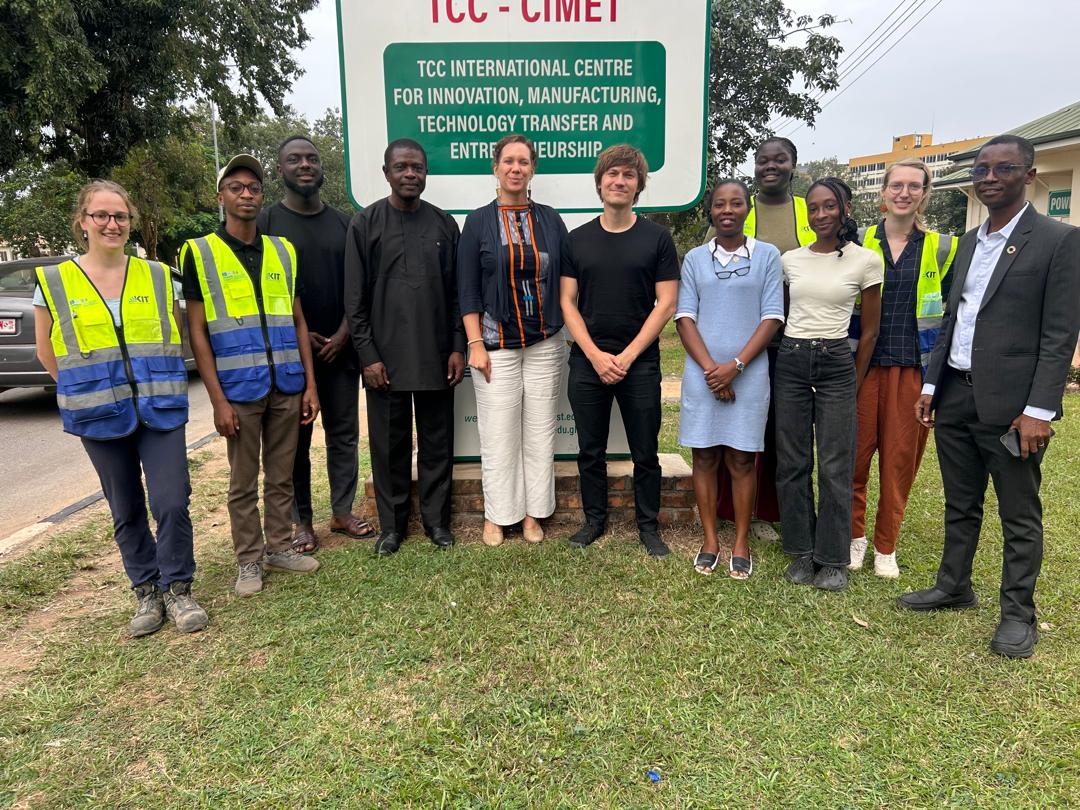The TCC International Centre for Innovation, Manufacturing, Technology Transfer and Entrepreneurship (TCC-CIMET), in collaboration with Germany’s Karlsruhe Institute of Technology (KIT), has held talks with the German Academic Exchange Service (DAAD) on potential partnerships to expand the RENABUMA Project.
The discussions focused on establishing a working relationship among the three parties and exploring funding opportunities to secure the project’s sustainable growth and future impact.
Prof. Moritz Dörstelmann, Professor of Digital Design and Fabrication at KIT’s Faculty of Architecture, said the initiative seeks to integrate technology with natural building resources.
“The project explores how digital design and verification technology can revive the use of natural building materials for more sustainable but also healthier living environments. And we do that with our lab, and it’s epic to see that a similar lab is here to work at construction scale with these technologies,” he said.
He noted the importance of involving researchers and students from Kwame Nkrumah University of Science and Technology (KNUST).
“We have Magaret and Kwame who are local researchers here from KNUST and we are working together on this project. So, I think the idea is quite interesting for us as a partner since we aim for a longer-term partnership and we’ll have regular exchange on researcher level and on student level, and for us it would be interesting to see how that activity could be supported on various levels,” he said.
Dörstelmann’s presentation highlighted how digital design and robotic fabrication can transform natural and waste-based materials such as earth, willow and wood into scalable, sustainable and circular construction systems.
Dr. Alexander Marful of TCC-CIMET added that the project extends beyond architecture, linking computer, electrical and mechanical engineering in line with the centre’s interdisciplinary mandate.
“We are looking at organizing small events where past DAAD alumni can also come in and share their experiences, especially if they’re in the same area of work. Then we can also invite our German partners to join us. So, we are thinking about ways in which the office can support this collaboration,” he said.
Lena Leumer, Director of the DAAD Regional Office in Accra, said she saw strong potential in the partnership and pledged support in securing funding.
“I see a lot of potential with what we’ve discussed here today and I’m happy that we are the first ones to be in contact. But in addition to what we have discussed, for the student exchange it might be worth linking up with other bodies like GIZ and KFW who are also active in that regard,” she said.
She added that the regional office remains ready to support initiatives such as DAAD Alumni Connect, which creates opportunities for beneficiaries to exchange ideas.
Prof. Francis Davis, Director General of TCC-CIMET, thanked Leumer on behalf of the centre and expressed hope of building a long-term relationship with DAAD.
The initiative aligns with KNUST’s and the Vice Chancellor’s broader goal of promoting partnerships that advance innovation and sustainable development. Also present at the meeting were Registrar of the Centre Rhoda Dufie Dwobeng and students from KIT and KNUST.

















